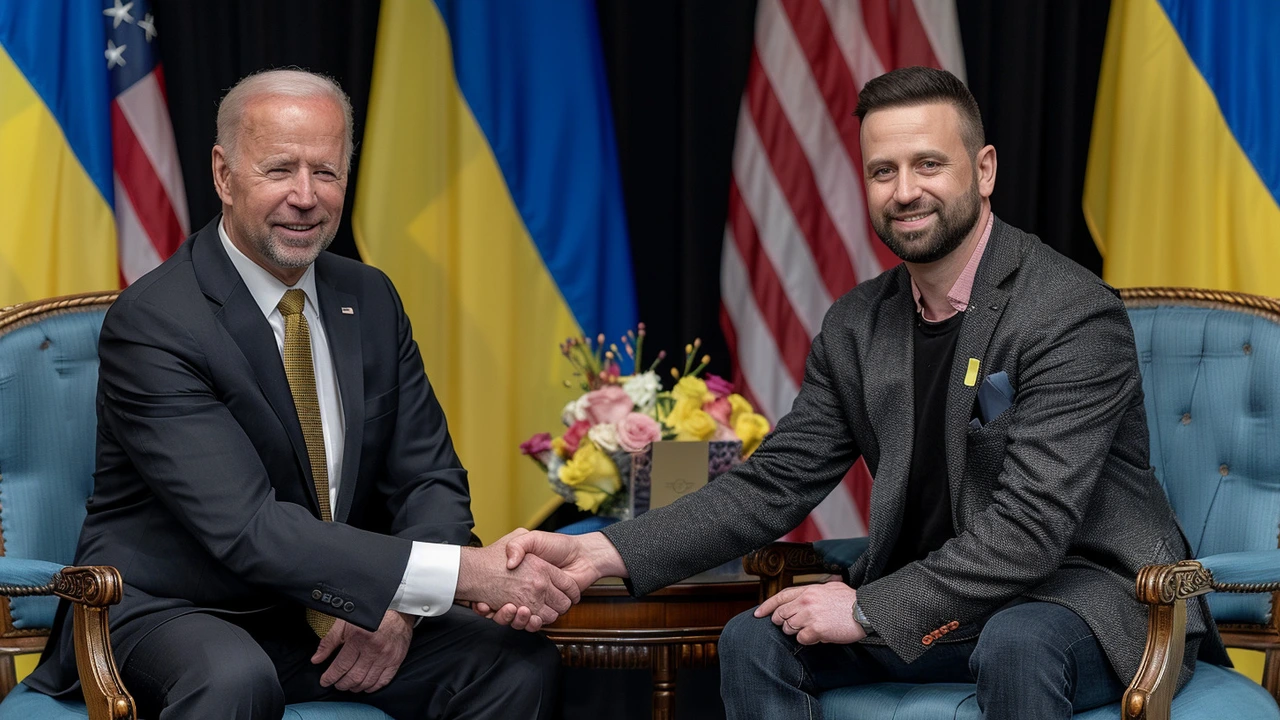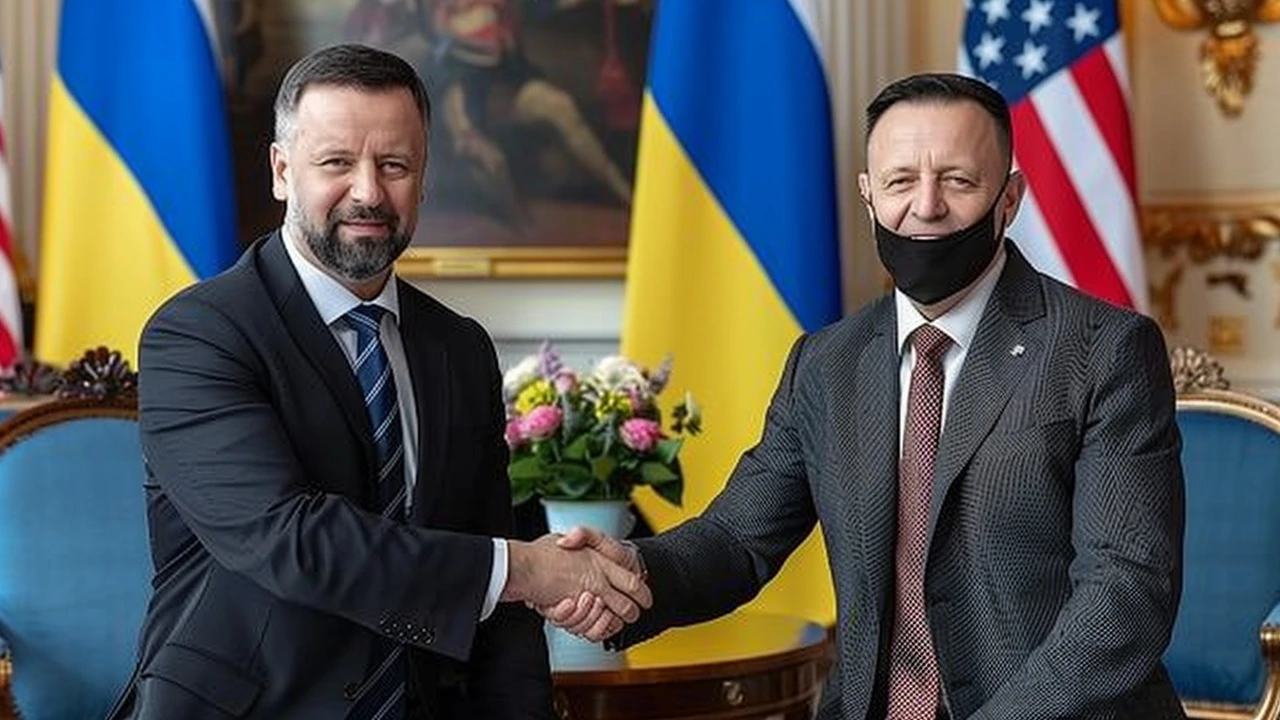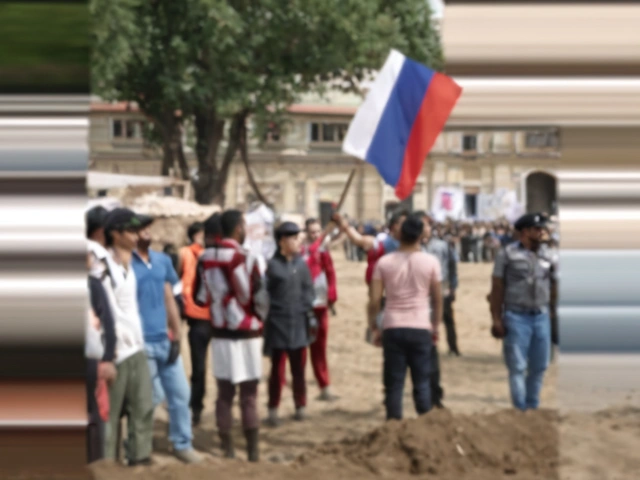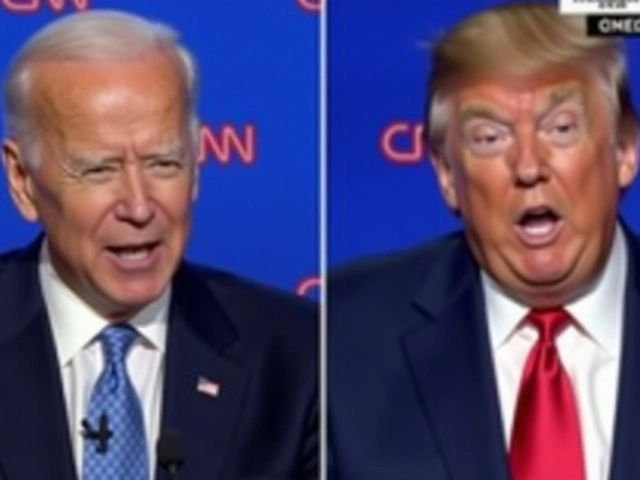Tensions Rise as Biden and Zelenskyy Convene in Paris
In a high-stakes meeting held in Paris, U.S. President Joe Biden and Ukrainian President Volodymyr Zelenskyy discussed the escalating situation in Ukraine, which has been intensely pressured by Russian offensives. The encounter came at a crucial time, just after the commemoration of the 80th anniversary of D-Day, a poignant reminder of past battles for freedom. This setting provided a powerful backdrop as both leaders navigated the complex dynamics of modern warfare and international politics.
President Zelenskyy, facing relentless assaults from Russian forces in both the north and east, has been vocal about the need for more substantial support from Western allies. The Ukrainian military continues to struggle against a better-equipped and numerically superior Russian army, making the provision of advanced weaponry a critical factor in the nation's defense strategy. During the Paris summit, Biden is expected to announce a significant $225 million weapons package, aimed at bolstering Ukraine’s defensive capabilities.
Zelenskyy’s plea for unrestricted use of American weapons against Russian targets has caused friction among Ukraine's allies. While some Western nations support lifting the restrictions, others remain cautious, wary of escalating the conflict further. This divide has been a source of tension within the alliance, with countries like France stepping up their military aid—recently pledging Mirage combat aircraft and training for Ukrainian troops.

Commemorating D-Day: Echoes of History
Biden and Zelenskyy’s meeting took place in the shadow of the 80th anniversary of D-Day, a significant moment in history that saw Allied forces liberate Europe from Nazi control. In attendance at the Normandy American Cemetery, Biden drew parallels between the historic battle and the current conflict in Ukraine. The U.S. President referred to Russian President Vladimir Putin as a 'tyrant bent on domination,' underscoring the ideological battle between democracy and autocracy.
'We will not abandon Ukraine,' Biden declared, echoing the resilient spirit of WWII veterans present at the ceremony. He emphasized the importance of supporting Ukraine to prevent its potential subjugation under Russian rule, framing the conflict as a continuation of the struggle for freedom and democracy that underscored D-Day.
Strategic Decisions and International Risks
The meeting in Paris comes on the heels of Zelenskyy’s visit to the White House in December, where he sought approval for additional military aid from the U.S. Congress. The situation has since evolved, with the conflict reaching new levels of intensity and international stakes rising. Biden’s cautious yet supportive stance demonstrates the delicate balance the U.S. strives to maintain—providing necessary support to Ukraine while avoiding direct confrontation with Russia.
Russia’s aggressive response to Western-backed aid for Ukraine has been severe. President Vladimir Putin has threatened to distribute arms to countries that could potentially target the West, raising concerns about a broader escalation. Moreover, Putin has not hesitated to hint at the use of nuclear weapons, a chilling reminder of the high stakes involved in this conflict.
The strategic decisions made by Zelenskyy and Biden during their Paris meeting hold significant implications for the future of Ukraine and its allies. As they navigate these perilous waters, the commitment of Western nations to Ukraine’s sovereignty and independence will be tested.
The continued pressure on Ukraine’s military highlights the urgent need for increased support and solidarity from the international community. Zelenskyy’s calls for more aid reflect the desperate situation on the ground, where Ukrainian soldiers face an uphill battle against a formidable adversary. The potential announcement of a $225 million weapons package by Biden is a critical step in providing the necessary resources for Ukraine’s defense.
Global Implications and the Path Forward
The conflict in Ukraine has far-reaching implications that extend beyond the immediate region. It serves as a stark reminder of the fragility of international peace and the enduring relevance of historical lessons. The Paris summit underscored the importance of strong alliances and the collective responsibility to uphold democratic values in the face of authoritarian aggression.
As Biden and Zelenskyy continue to navigate this complex geopolitical landscape, the international community watches closely. The outcomes of their discussions and the subsequent actions taken by their respective governments will shape the future of the Ukraine-Russia conflict and its broader impact on global stability.
In the meantime, the people of Ukraine continue to bear the brunt of the conflict. Their resilience and determination in the face of adversity serve as a powerful testament to the human spirit. As world leaders deliberate on their next steps, the courage and sacrifices of the Ukrainian people remain a driving force behind the push for greater international support.
In conclusion, the Paris meeting between Biden and Zelenskyy marked a pivotal moment in the ongoing Ukraine-Russia conflict. With discussions centered around increased military aid, historical parallels, and strategic decisions, the summit highlighted the critical need for international solidarity and support. As the situation unfolds, the decisions made by these leaders will have lasting implications for Ukraine, its allies, and the broader geopolitical landscape.






